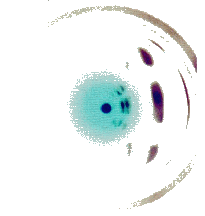
But what is knowledge exactly?
Analysis of the forms knowledge can take is called empistemology.
Greek philosophers (Aristotle, Socrates, Plato etc.) gave particular attention to epistemological issues.
We call this reasoning.
The process seems to involve reference to facts and relations.
But we also experience knowledge in other ways.
Much earlier, Socrates introduced the idea that knowledge is true belief, i.e., if you believe that X, and it is true that X, then you have knowledge that X.
But it seems a bit odd that one could gain knowledge just by adopting a true belief at random.
Two main possibilities:
All ideas are seen to develop from experience.
Locke distinguishes simple ideas ("red", "sweet", "round") from complex ideas like "number", "cause".
This does seem to be the basis of learning and science.
From seeing that swans are white, we derive the law that all swans are white.
Using this, we predict that an unseen swan is going to be white.
This certainly seems like knowledge.
But can we really treat inductive inferences as knowledge, given they may turn out to be false?
Is there any reason to expect unseen swans to be white?
Intuitively, yes, because we expect the world to show uniformity. If we see a preponderance of white swans, we expect more of the same.
But is there any reason to expect the world to show uniformity?
The only way we could justify this assumption is by induction!
That would make the whole thing circular.
So it seems there cannot be any firm, foundation for inductively derived laws.
As he noted, the validity of inductive generalizations depends on nature's uniformity.
The validation of inductive generalization therefore involves demonstrating that nature exhibits uniformity.
The only basis on which we can know about the uniformity of nature is by induction.
Attempts to validate induction using a uniformity assumption are `going in a circle, and taking that for granted, which is the very point in question' (Hume, Enquiry, Salle Court, 1748, p. 80).
Bertrand Russell summarised the situation by pointing out this implies `there is no intellectual difference between sanity and insanity'.
He suggests scientists are on an equal footing with `the lunatic who believes that he is a poached egg.' (Russell, 1946, p. 673)
They should use falsification instead.
This means always sticking to hypotheses that can be proved wrong.
Progress is achieved simply by falsifying one hypothesis after another.
We can't assume the process is getting closer to the truth unfortunately.